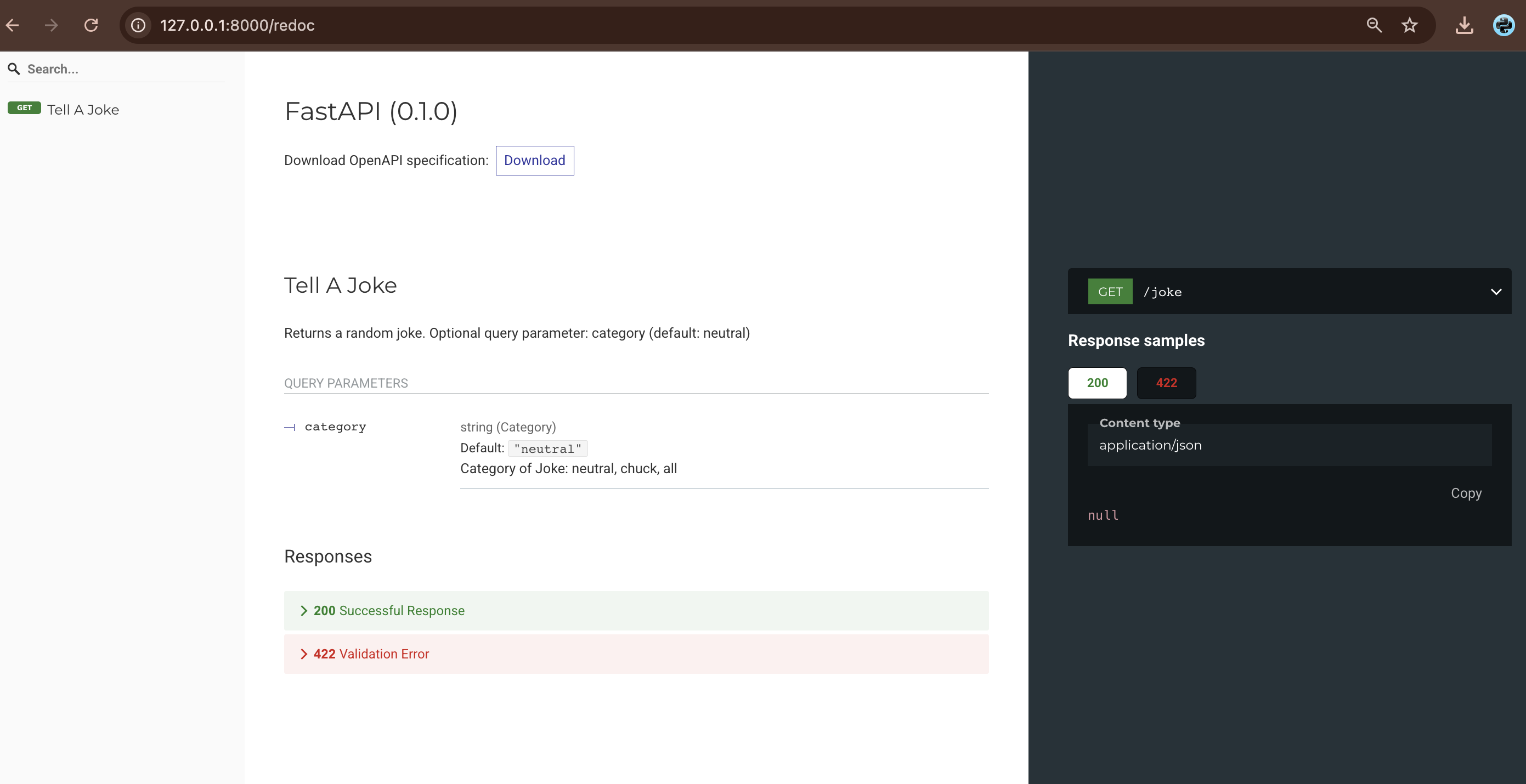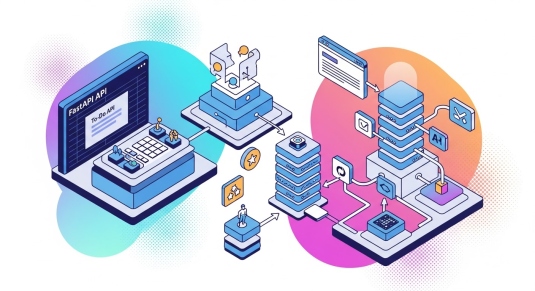Introduction
FastAPI is one of the fastest-growing Python frameworks for building APIs. It is super fast, easy to learn, and perfect for beginners.
In this tutorial, you’ll build your first FastAPI application — a simple API that returns a random joke using the pyjokes library.
This guide is written for absolute beginners, so no prior backend experience is required.
Understanding the Requirements
Before writing any code, let’s understand what tools we’ll use:
What you need:
- Python 3 installed
- Basic understanding of functions and imports
- A terminal or command prompt
- Two simple Python libraries:
fastapiuvicornpyjokes
The application we build will:
- Start a FastAPI server
- Provide an endpoint
/joke - Return a random joke in JSON format when visited
Setting Up Your Environment
Open your terminal and install the required libraries:
pip install fastapi uvicorn pyjokes
To confirm installation:
python -m pip show fastapi
python -m pip show uvicorn
python -m pip show pyjokes
Everything should show a valid version number.
Creating Your FastAPI App
Create a new file called main.py and add the following code:
from fastapi import FastAPI
import pyjokes
app = FastAPI()
@app.get("/joke")
def tell_joke():
print(joke := pyjokes.get_joke())
return {"joke": joke}
Code Explanation
1. Importing Modules
from fastapi import FastAPI
import pyjokes
FastAPIlets you create API endpoints easily.pyjokesgives us ready-made programming jokes.
2. Creating an App Instance
app = FastAPI()
This creates your FastAPI application. Think of it as the “brain” of your API.
3. Creating an Endpoint
@app.get("/joke")
def tell_joke():
@app.get("/joke")tells FastAPI:“When someone visits
/joke, run the function below.”
4. Returning a Joke
return {"joke": joke}
FastAPI automatically converts this Python dict into JSON.
Running the FastAPI App
Use the following command in the folder where main.py is saved:
python -m uvicorn main:app --reload
What this means:
uvicorn→ server that runs FastAPImain→ the filenamemain.pyapp→ the FastAPI instance inside that file--reload→ restart automatically whenever you edit the file
Testing Your API
Once the server is running, open your browser and visit:
http://127.0.0.1:8000/joke
You should see something like:
{
"joke": "Why do programmers prefer dark mode? Because light attracts bugs!"
}
Bonus: Automatic Documentation!
FastAPI automatically generates documentation pages.
Open these:
Swagger UI
http://127.0.0.1:8000/docs
ReDoc
http://127.0.0.1:8000/redoc

You get beautiful, interactive API docs for free.
Complete Source Code
# pip install fastapi uvicorn pyjokes
from fastapi import FastAPI
import pyjokes
app = FastAPI()
@app.get("/joke")
def tell_joke():
print(joke := pyjokes.get_joke())
return {"joke": joke}
# Run using:
# python -m uvicorn main:app --reload
Conclusion
You have now built your first FastAPI project!
You learned:
- How to install FastAPI
- How to create an API endpoint
- How to return JSON responses
- How to run a development server
- How to access auto-generated API docs
This is only the beginning — FastAPI can handle authentication, databases, async tasks, and much more.
Happy coding!
Website: https://www.pyshine.com Author: PyShine




